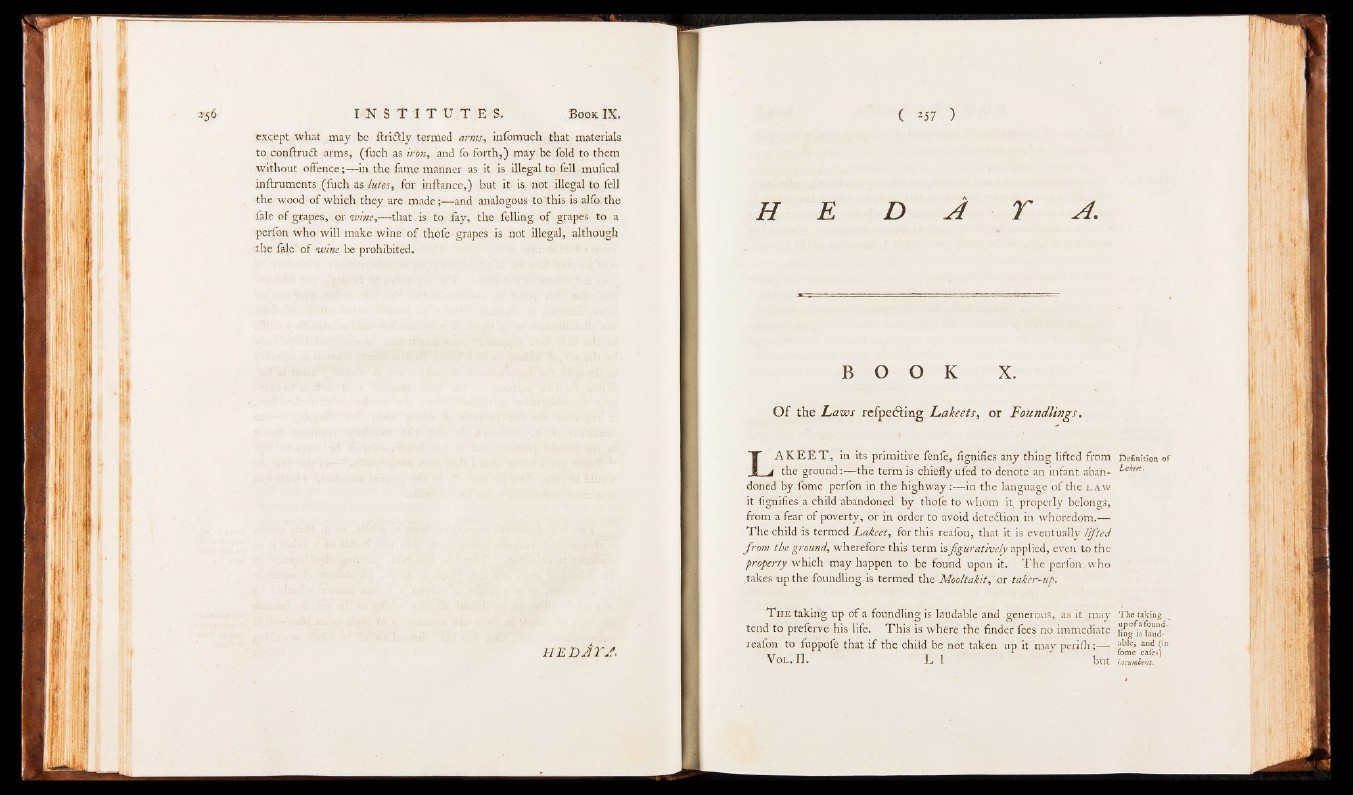
except what may be ftri&ly termed arms, infomuch that materials
toconftrudt arms, (fuch as iron, and fo forth,) may be fold to them
without offence;— in the fame manner as it is illegal to fell mufical
inflruments:(fuch as lutes, for inftance,) but it is not illegal to fell
the wood of which they are made;— and analogous to this is alfo the
-fale of grapes, or wine,— that is to fay, the felling of grapes to a
perfon who will make wine of thofe grapes is not illegal, although
■ the fale of wine be prohibited.
h e b A y a .
H E D A T A .
B O O K X.
O f the Laws re fp e ftin g Lakeets, or Foundlings.
LA K E E T , in its primitive fenfe, fignifies any thing lifted from
the ground:— the term is chiefly ufed to denote an infant abandoned
by fome perfon in the highway:— in the language of the l a w
it fignifies a child abandoned by thofe to whom it properly belongs,
from a fear of poverty, or in order to avoid detection in whoredom.—
The child is termed Lakeet, for this reafon, that it is eventually lifted
from the ground, wherefore this term is figuratively applied, even to the
property which may happen to be found upon it. The perfon who
takes up the foundling is termed the Mooltakit, nr taker-up.
THEtakiiJg up of a foundling is laudable and generous, as it may
tend to preferve his life. This is where the finder fees no immediate
reafon to fuppofe that if the chiid be not taken up it may perilh ;—
V ol.II. L I but
Definition of
Lakeet.
The taking
up o f a found-
ling is laudable,
and (in
fome cafes)
incumbent-,